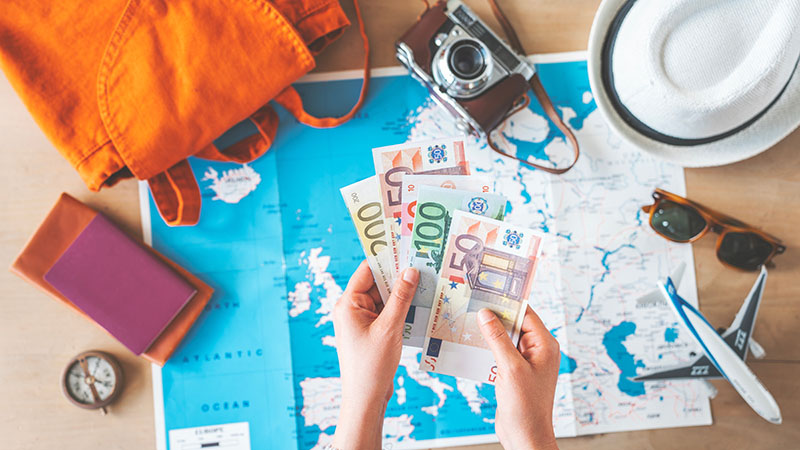7 Unexpected Travel Preparation Steps For A Stress-Free Vacation

Most travellers stick to the obvious preparation basics: booking flights, reserving hotels, and cramming everything into a suitcase the night before departure. While these fundamentals matter, the difference between a chaotic trip and a seamless vacation often lies in the details most people overlook.
The travel industry has evolved dramatically, and so should your approach to travel preparation. Beyond the standard packing checklist and travel documents, several unexpected steps can transform your vacation experience from stressful to sublime.
1. Schedule Pre-Trip Check-ups and Medical
Your health shouldn't take a vacation, even when you do. Scheduling medical appointments before travelling might seem excessive, but it's one of the smartest moves you can make. Many travellers discover dental emergencies or health issues while away from home, turning dream vacations into expensive nightmares.
Consider visiting your dentist at least two weeks before departure, especially for international travel. If you've been putting off that dental work, now's the time to address it.
Some travellers even schedule procedures like full arch dental implants All-on-4, well in advance of major trips, ensuring their recovery period won't interfere with vacation plans. The last thing you want is a dental emergency in a foreign country where language barriers and unfamiliar medical services complicate treatment.
Similarly, visit your primary care physician to discuss any ongoing health concerns and obtain necessary prescriptions. Experts recommend checking Travel Health Notices for your destination, as different regions may require specific vaccinations or health precautions.
2. Research Local Laws and Customs Beyond Tourist Guidelines
Every destination has unwritten rules that can catch unsuspecting travellers off guard. While guidebooks cover major cultural differences, they often miss the nuances that locals take for granted. Spending time researching local customs, social norms, and legal requirements can prevent awkward situations and potential legal issues.
For instance, some countries have strict import restrictions on common items like certain medications, electronics, or even specific food products. Browse local forums, travel blogs, and recent traveller experiences to understand what daily life really looks like in your destination.
This research becomes particularly crucial when visiting countries with significantly different cultural norms. What's considered polite in one culture might be offensive in another, and understanding these subtleties will enhance your interactions with locals while showing respect for their way of life.
3. Create Digital Backup Systems for Everything Important
Technology failures happen at the worst possible moments, usually when you're thousands of miles from home with limited resources. Creating comprehensive digital backups goes far beyond scanning your passport and boarding pass.
Photograph or scan all important documents: travel insurance policies, medical insurance cards, prescription information, emergency contacts, and even your packing list. Store these in multiple cloud services and email copies to yourself. Take photos of your credit cards, driver's license, and any specialty cards you might need.
Most travellers stop here, but you should go further. Create a shared digital folder accessible to a trusted contact at home. Include your itinerary, hotel confirmations, rental car information, and emergency contacts. If something happens to your devices or you lose access to your accounts, this person can quickly provide you with essential information.
4. Arrange Specialised Pet Care and Home Security
Pet care extends far beyond finding someone to feed your cat or dog. Professional pet sitters or boarding facilities require advance booking, especially during peak travel seasons. However, the unexpected part involves preparing your pet for your absence and ensuring your home remains secure.
Weeks before departure, start gradually adjusting your pet's routine. If you're using a new pet sitter, arrange multiple meet-and-greet sessions. Create detailed care instructions that go beyond feeding schedules. Include information about your pet's personality, favourite spots, behavioural quirks, and emergency veterinary contacts.
For home security, consider installing smart home devices that allow remote monitoring. Set up automated lighting systems, arrange for lawn care, and notify trusted neighbours about your absence. These steps create the illusion of occupancy while providing you peace of mind throughout your vacation.
5. Plan Your Re-Entry Strategy
Most travellers focus entirely on getting to their destination, giving little thought to their return home. This oversight often leads to post-vacation stress that can overshadow the entire experience. Planning your re-entry strategy begins before you even leave.
Schedule your return for a day or two before you need to resume normal activities. This buffer time allows for flight delays, jet lag recovery, and the inevitable mountain of laundry. Stock your pantry with necessities so you're not forced to grocery shop immediately after a long journey.
Consider pre-trip maintenance for your car if it's been sitting in long-term parking. Arrange for any necessary vehicle servicing before departure, and research transportation options from the airport to avoid scrambling for rides when you're exhausted from travel.

6. Establish Communication Protocols and Emergency Plans
Create a communication schedule that works across time zones. Establish check-in times and backup communication methods if your primary plans fail. Share your daily itinerary with someone at home, but don't stop there. Provide them with local emergency numbers, your hotel's contact information, and details about your travel insurance coverage.
Research local communication options at your destination. International roaming charges can be astronomical, so investigate local SIM cards, international phone plans, or Wi-Fi calling options. Having multiple ways to stay connected ensures you're never completely cut off from help if needed.
7. Conduct a Trial Run of Your Packing System
Packing the night before departure guarantees forgotten essentials and overstuffed luggage. Instead, conduct a complete packing trial run at least a week before your trip. This practice round reveals what you're missing, what doesn't fit, and what you can leave behind.
Use this trial to test your luggage zippers, wheels, and handles. Weigh your packed bags to avoid airport surprises, and ensure you have proper TSA-approved locks and any necessary adapters for electronic devices. Practice packing your carry-on with essential items in case your checked baggage gets delayed.
During this trial run, double-check your travel documents, visa requirements, and International Driving Permit if needed. Confirm that your passport won't expire within six months of your travel dates, and verify entry and exit requirements for your destination.
The Path to Vacation Bliss
These unexpected preparation steps might seem excessive, but they're investments in your vacation experience. Each element works together to create a foundation for stress-free travel, allowing you to focus on enjoying your well-deserved break.
The key is starting these preparations well in advance, giving yourself time to address any issues that arise. When you've covered these often-overlooked details, you can board that plane with confidence, knowing you've truly prepared for a memorable vacation.
|